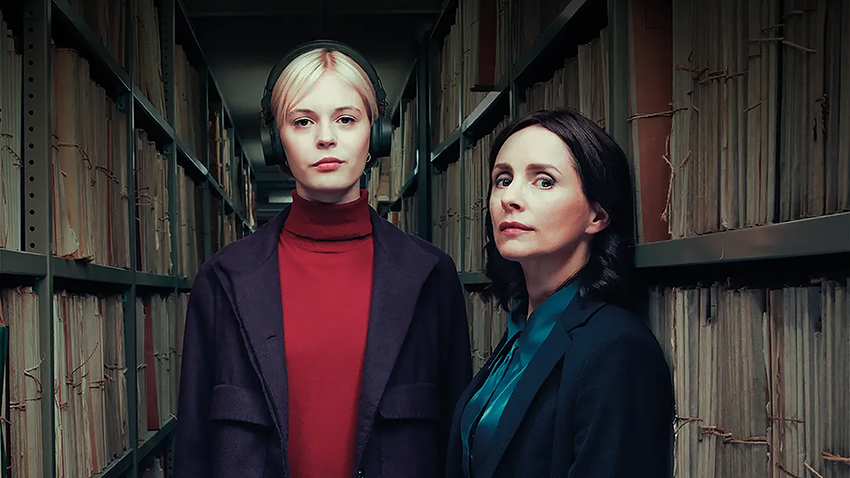At first glance, Patience might look like any other police procedural: a hard-boiled detective paired with a quirky consultant and puzzling crimes. But what sets this remake apart is its central character—Patience Gibbs, played with striking restraint and clarity by Ella Masie Purvis, an autistic actor portraying an autistic character. That, alone, marks a quiet revolution in the genre.
Adapted from the French series Astrid et Raphaëlle, Patience follows Detective Beatrice Metcalf portrayed by Laura Fraser, who enlists the help of Patience, a records officer with a gift for spotting patterns and contradictions. What begins as reluctant collaboration grows into a rich, if unconventional, partnership. But it’s not the crime-of-the-week format that makes Patience remarkable. It’s the lens through which the story is told.
There are very few autistic characters on television, and fewer still in lead roles. When they do appear, they are often filtered through neurotypical perceptions—characters like Bones’ Temperance Brennan or The Good Doctor’s Shaun Murphy. They tend to be brilliant, emotionally distant, and occasionally used as devices for others’ emotional growth. Patience is different. It lets the autistic character be the story, not just a foil to it.
Ella Masie Purvis’ performance is central to that success. She doesn’t exaggerate or flatten Patience into a list of symptoms. Instead, she offers a layered portrayal grounded in lived experience—controlled physicality, and a deep emotional resonance that isn’t loud but lingers. There’s no need for melodramatic backstory or overcompensation. Patience is simply herself: focused, methodical, occasionally overwhelmed, in need of routine and often brilliant.
The show resists the impulse to pathologise her. When Patience covers her ears in a noisy environment or becomes fixated on a detail, the camera doesn’t treat it as a deficit. It doesn’t cue swelling music or cut to concerned glances. It simply shows what is. And that normalisation is radical in a medium that often demands its characters be performatively “relatable.”
What this brings to the police procedural is a fresh kind of intelligence. Patience sees what others miss—not through superhuman intellect, but through sustained observation, deep knowledge, and a refusal to rely on hunches or shortcuts. She is not the intuitive genius solving crimes with flair. She’s the one buried in old files at midnight, noticing a two-year-old discrepancy that unlocks the case. In this way, Patience quietly subverts the genre’s emphasis on swagger and spontaneity.
That’s not to say the show is without tension or emotion. The dynamic between Patience and Beatrice deepens with each episode. There are conflicts—Beatrice’s impatience, Patience’s discomfort with unpredictability and the need to have order—but these moments serve to deepen, not dramatise, their connection. It’s refreshing to see a show where growth happens slowly, through mutual learning, not emotional fireworks.
Importantly, Patience isn’t trying to make its lead “inspirational.” It’s not asking us to pity her or to applaud her “overcoming” autism. Instead, it invites viewers to broaden their definition of what capability, insight, and emotional depth can look like.
Too often, autistic characters are written about, not with. They are defined by difference, not agency. But with Patience, we get something different: a character at the centre of the story, whose neurodivergence is not a gimmick or obstacle, but a genuine asset. This isn’t just inclusion—it’s redefinition.
Patience is more than a remake—it’s a thoughtful reimagining. Laura Fraser’s DI Bea Metcalf and Ella Maisy Purvis’s Patience Evans form a partnership rooted in respect, growth, and shared intelligence. By foregrounding a richly developed autistic lead, the series elevates both representation and genre storytelling—quietly, profoundly, and memorably.
If crime dramas have taught us anything, it’s that the truth often lies in what others overlook. Patience embraces that lesson both in its form and in its casting. And in doing so, it quietly makes television a more truthful—and more interesting—place to be.





